- Home
- P. G. Wodehouse
Ice in the Bedroom Page 2
Ice in the Bedroom Read online
Page 2
Yes, he had lost her. And - which made it all the more bitter - here he was in London, chained to the spot without a chance of getting away till his annual holiday in November, while she was down in Sussex at Claines Hall, Loose Chip-pings. Not an earthly, in short, of being able to get to her and do a little quick talking, a thing he knew himself to be good at, and persuading her to forget and forgive. It is not too much to say that at the moment when Elsa Bingley, Mr. Shoesmith's secretary, touched him on the shoulder, bringing him out of the wreck of his hopes and dreams with a jerk, Frederick Widgeon was plumbing the depths.
'His nibs wants to see you, Freddie,' said Elsa Bingley, and he nodded a sombre nod. He had rather thought that this might happen.
In the inner lair where he lurked during business hours . Mr. Shoesmith was talking to his daughter Mrs. Myrtle Prosser, who had looked in for a chat as she did sometimes - too often, in Mr. Shoesmith's opinion, for he disliked having to give up his valuable time to someone to whom he could not send in a bill. At the mention of Freddie's name Myrtle showed a mild interest.
'Widgeon?' she said. 'Is that Freddie Widgeon?'
'I believe his name is Frederick. You know him?'
'He's a sort of friend of Alexander's. He comes to dinner sometimes when we need an extra man. I didn't know he worked here.'
'It is a point on which I am somewhat doubtful myself,’ said Mr. Shoesmith. 'Much depends on what interpretation you place on the word "work". To oblige his uncle Lord Blicester, whose affairs have been in my hands for many years, I took him into my employment and he arrives in the morning and leaves in the evening, but apart from a certain rudimentary skill in watching the clock, probably instinctive, I would describe him as essentially a lily of the field. Ah, Mr. Widgeon.'
The lily of the field of whom he was speaking had entered, and, seeing Myrtle, had swayed a little on his stem. This daughter of Mr. Shoesmith who had married Alexander ('Oofy') Prosser, a thing not many girls would have cared to do, was a young woman of considerable but extremely severe beauty. She did not resemble her father, who looked like a cassowary, but suggested rather one of those engravings of the mistresses of Bourbon kings which make one feel that the monarchs who selected them must have been men of iron, impervious to fear, or else shortsighted. She always scared Freddie to the marrow. With most of the other sex he was on easy terms - too easy was the view of his late fiancée - but the moon of Oofy Prosser's delight never failed to give him an uncomfortable feeling in the pit of the stomach and the illusion that his hands and feet had swelled unpleasantly.
'Oh, hullo, Mrs. Oofy,' he said, recovering his equilibrium, 'Good morning.'
'Good morning.'
'Going strong?'
'I am quite well, thank you.'
'Oofy going strong?'
'Alexander, too, is quite well.'
'Fine. He was telling me about those bits and pieces of yours.'
'I beg your pardon?'
'The ice. Your jewellery. Getting stolen and all that.'
'Oh, yes.'
'Bad show.'
'Very.'
'But you've got the insurance money, he tells me.'
'Yes.'
'Good show.'
Mr. Shoesmith broke in on these intellectual exchanges. He was not a man who suffered Freddie Widgeon gladly, considering him what in an earlier age would have been called a popinjay. Their souls were not attuned, as Freddie would have been the first to concede, though with the proviso that it was very doubtful if his employer had a soul. He had been serving under his banner for some six months now, and not a sign of one so far.
'I wonder if you could spare me your attention for a moment, Mr. Widgeon.'
By standing on one leg and allowing his lower jaw to droop Freddie indicated that he would be delighted to do so.
'You have no objection to me talking shop for a little while?'
None whatever, Freddie indicated by standing on the other leg.
'Mr. Jervis tells me you were late again this morning.' '
Er - yes. Yes, sir. Yes.'
'This frequently happens.'
'Yes, sir. These suburban trains, you know.'
'Well, no doubt we should consider ourselves fortunate that we are given at least some of your time, but I must ask you in future to try to synchronize your arrival at the office with that of the rest of the staff. We aim as far as possible at the communal dead heat.’
'Yes, sir.’
'So do your best, Mr. Widgeon, even if it means taking an earlier suburban train.’
'Yes, sir.'
'Or two suburban trains. You see, when you fail to appear, we become nervous and jumpy. Some accident must have occurred, we whisper to each other, and these gruesome speculations, so bad for office morale, continue until some clear thinker like Mr. Jervis points out that it would be a far greater accident if you were ever on time. However, that was not primarily what I wished to see you about. If you can tear yourself away from your desk this afternoon, I should like to engage your services for a confidential mission.'
'Yes, sir.'
'I have here some documents requiring the signature of Miss Leila Yorke, whose name will probably be familiar to you. Take them to her, if you will be kind enough, after lunch. Her address is Claines Hall, Loose Chippings, Sussex. You book your ticket at Victoria and alight at Loose Chippings station. The Hall is within an easy walk. Have I made myself clear?'
'Yes, sir.'
'Splendid,' said Mr. Shoesmith. 'Thank you, Mr. Widgeon, that is all.'
Eminent solicitors very seldom pay much attention to the muscular twitchings of the minor members of their staff, and Mr. Shoesmith, issuing these instructions, did not observe that at the mention of Claines Hall, Loose Chippings, Sussex, his young subordinate had started, but he had, and violently. His master's voice had affected him like a powerful electric shock, causing the eyeballs to rotate and everything for an instant to go black. It was only by the exercise of the greatest care that he was able to remove himself from the presence without tripping over his feet, so profoundly had the thought that he was going to see Sally again stirred him. For the rest of the morning and all through his frugal lunch at the Drones he brooded tensely on the situation which had arisen, running, it would not be too much to say, the gamut of his emotions.
At the outset he had been all joy and effervescence, feeling that out of a blue sky Fate had handed him the most stupendous bit of goose and that all was for the best in this best of all possible worlds, but as the time went by doubts began to creep in. Was this, he found himself asking himself, a good show or a bad show? Would seeing Sally alleviate that yearning feeling which so often darkened his days, or - let's face it - would he merely be twisting the knife in the wound, as the expression was? The question was a very moot one, and it is not surprising that those of his clubmates who threw lumps of sugar at him during the meal commented on his lack of sparkle and responsiveness.
On the whole, though it was a close thing, he was inclined to think that the show's goodness outweighed its badness. Agony, of course, to see her face to face and think of what might have been, but on the other hand there was always the chance that Time the great healer might have been doing its stuff, softening her heart and causing better counsels to prevail.
His mood, in consequence, as he made his way to Victoria and bought his ticket, was on the whole optimistic. Many a girl, he told himself, who in the heat of the moment had handed her loved one the pink slip, finds after thinking it over in the privacy of her chamber in the course of sleepless nights that what she had supposed to be a sound, rational move was in reality the floater of a life-time. Remorse, in short, supervenes, and when the rejected one suddenly pops up out of a trap before her, her eyes widen, her nose twitches, her lips part, she cries, 'Oh, Freddie darling!' and flings herself into his arms, and all is gas and gaiters again.
The day was Friday, never a good day for travelling, and the congestion in all parts of the station had extended itself t
o the train for Loose Chippings. It bulged at every seam with human sardines. Faced with a choice between compartments filled with outsize adults and those where the adults were more streamlined but were accompanied by children, he chose one of the former. Only standing-room remained in the little Black Hole of Calcutta which he had selected, so he stood, and from this elevation was able to see his fellow-travellers steadily and see them whole.
There were eight of them, three men who looked like farmers, three women who looked like farmers' wives, a man in black who might have been an undertaker in a modest line of business, and over in the far corner a small, trim girl who was reading a magazine. She immediately arrested Freddie's attention. There was something about her that reminded him of Sally. Extraordinarily like Sally she was, from what he could see of her, and the next moment he was able to understand why there was such a resemblance.
It was Sally. She looked up from her magazine as the train started, and her eyes met his.
They were, he noted, as blue as ever, and the nose, the one that twitched like a rabbit's, still tilted slightly at the tip. The mouth was as of yore a little wide. Of the teeth he could not judge, for she was not smiling, but what of her hair he could see remained that attractive copper colour he had always admired so much. Her face, in short, taking it by and large, was exactly as he remembered it from, it sometimes seemed to him, a previous existence, and at the sight of it he was conscious of an elation so pronounced that if the three farmers, the three farmers' wives and the undertaker had not been present, he would have snorted like the warhorse which, we are told, though it seems odd, used to say 'Ha, ha!' among the trumpets.
3
’LOOSE CHIPPING’ chanted the porter as the train sauntered into the little country station, and Sally pushed her way through the sea of legs between her and the door and stepped down on to the platform.
She was furious, and, she considered, justly. At the cost of much mental distress she had cast this man out of her life because prudence told her he was irresponsible and not to be trusted, and it was monstrous that he should come sneaking back into it like this, reminding her that she still loved him and reviving all the old emotions which she had hoped she had killed long ago.
She fortified herself for the coming encounter by the simple process of thinking of that fatal cocktail party when the scales had fallen from her eyes and she had seen him for what he was.
She had been warned. There was a group of young men near the door at that cocktail party, and as she was passing them she heard one of them utter these frightful words:
‘I suppose if all the girls Freddie Widgeon has been in love with were placed end to end - not that one could do it, of course - they would reach from Piccadilly Circus to Hyde Park Corner. Further than that, probably, because some of them were pretty tall.'
And it was as she passed through the door, not wishing to sully her ears any longer, that she had come upon the Widgeon-Bunting combination linked in a close embrace on the top landing.
The recollection made her strong again. She looked at him as he stood beaming by the penny-in-the-slot machine, and an imperious desire swept over her to wipe that silly smile off his face.
'Freddie,' she said, speaking from between clenched teeth, 'go home!'
'Eh?'
'I told you I never wanted to see you again. Didn't you understand?'
'Well, yes, I more or less grasped that.'
'Then why have you followed me here?'
Freddie stiffened. He ceased to beam. It pained him to find that he had overestimated the potentialities of Time, the great healer, and that the platform of Loose Chippings station was not to be the scene of a tender reconciliation, but righteous wrath overcame pain. He was deeply offended at being accused for once in his life of something of which he was not guilty. The apologetic lover became the man of ice, and he, too, spoke from between clenched teeth.
'Who's followed who where?' he said haughtily. 'I'm here on business.'
‘You?’
'Yes, me. I've come to see Miss Leila Yorke. I understand she hangs out at a joint called Claines Hall. Perhaps you would be good enough to direct me there.'
'I'll take you there.'
'You won't object to being seen in public with one of our leading underworld characters?'
'There's no need to be so pompous.'
'Yes, there is. Every need. I feel pompous. Followed you here, forsooth! You could have knocked me down with a banana skin when I saw you on that train. What were you doing in London, anyway?'
'I had to see Miss Yorke's agent about something.'
"Oh, was that it? Do you often get up to London?'
'Very seldom.'
'You're lucky. Lousy place. Ruddy sink of a place. No good to man or beast. Not a soul in it except blighters with briefcases and blisters in bowler hats.'
'What's happened to the girls? Have they all emigrated?'
'Girls! They mean nothing in my life.'
'Says you!'
'Yes, says me. Don't you believe me?' 'No, I don't. You're like the leopard.'
'I'm not in the least like a leopard. What particular leopard had you in mind?'
'The one that couldn't change its spots.'
'I call that a most distasteful crack.'
'I'm sorry. Shall we be starting for the Hall?'
'Just as you like.'
They came out into the High Street of Loose Chippings. The town's Pop, as the guide book curtly terms it, is four thousand nine hundred and sixteen, and at perhaps two hundred and four of these Freddie glared bleakly as they passed on their way. He would have glared with equal bleakness at the other four thousand seven hundred and twelve, had they been there, for he was in sullen mood. Here he was, with Sally at his side, and for all the good it was doing him she might have been miles away. Aloof, that was the word he was groping for. She was distant and aloof. Not a trace of the old Sally who in happier days had been such a stupendously good egg. For all the kick she appeared to be getting out of his society, she might have been walking with an elderly uncle. Since entering the High Street she had not spoken except to direct his attention to the statue erected in the Market square to the memory of the late Anthony Briggs, J.P., for many years parliamentary representative for the local division, and if ever in Freddie's jaundiced opinion there was a ghastly statue of a potbellied baggy-trousered Gawd-help-us, this statue was that statue.
Conversation was still flagging when after leaving Loose Chippings and its Pop behind and passing down a leafy lane they arrived at massive iron gates opening on a vista of shady drive, at the end of which could be seen glimpses of a Tudor mansion bathed in the afternoon sunlight.
'This is it,' said Sally. 'Nice place, don't you think?'
'It'll do,' said Freddie, who was still in the grip of dudgeon.
'It has a moat.'
'Oh, yes?'
'And a wonderful park.'
'Really? La Yorke does herself well. And can afford to, of course. Oofy Prosser tells me she makes a packet with her pen. He's got a lot of money in the firm that publishes her stuff.'
‘I know. He was down here seeing Miss Yorke the other day. Have you met him lately?'
'Oh, yes, he's generally in at the Drones for lunch. His wife had her jewels pinched not long ago.'
'So I read in the paper. Were they very valuable?'
'Worth thousands, I should think. They looked that way to me.'
'You've seen them?'
'I've been to dinner once or twice with the Oofys, and she had them all on. She glittered like a chandelier.'
'And they haven't got them back?'
'No.'
'Too bad.'
'It must have upset her.'
'I suppose so.'
Sally's heart was aching. All this formality and stiffness, as if they were strangers meeting for the first time and making conversation. Her own fault, of course, but a girl had to be sensible. If she were not, what ensued? She found herself fetching up at the e
nd of that long line stretching from Piccadilly Circus to Hyde Park Corner. On the stage on which Frederick Widgeon strutted, she told herself, there were no female stars, just a mob of extras doing crowd work.
She forced herself to resume the conversation as they walked up the drive.
'Where are you living now, Freddie? At the old flat?'
His face, already dark, darkened still further.
'No, I couldn't afford it. My uncle stopped my allowance, and I had to move to the suburbs. I'm sharing a house with my cousin George. You remember George?'
'Dimly.'
'Beefy chap with red hair. Boxed for Oxford as a heavyweight. He's one of the local cops.'
'He went into the police?'
'That's right. Said it was a darned sight better than being cooped up in an office all day, like me.'
'Like you? You aren't in an office?'
'I am. A solicitor's. Shortly after we…soon after I last saw you my foul Uncle Rodney bunged me into the firm of Shoesmith, Shoesmith, Shoesmith and Shoesmith of Lincoln's Inn Fields.'
Sally, firm in her resolve to be sensible, had not planned to betray any human feeling during this painful encounter, but at these words she was unable to repress a cry of pity.
'Oh, Freddie! Not really?'
'That's what he did. He placed me in the hands of his solicitor.'
'But you must hate it.'
'I loathe it.'
'What do you do there?'
'I'm a sort of "Hey, you" or dogsbody like the chap in "Old Man River".'
'Lift that trunk?'
'Shift that bale. Exactly. Today, for instance, old Shoesmith gave me some documents to take to Leila Yorke to sign. Why he couldn't just have popped them in the post is a matter between him and his God, if any. Tomorrow I shall probably be running down the street to fetch someone a cup of coffee and the day after that sweeping out the office. I tell you, when I see George coming in off his beat with a face all bright and rosy from a health-giving day in the fresh air, while I'm pale and wan after eight hours in a fuggy office, I envy him and wish I'd had the sense to become a copper.'

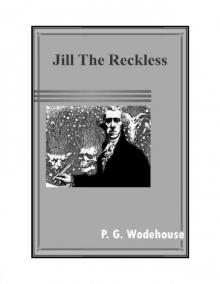 Jill the Reckless
Jill the Reckless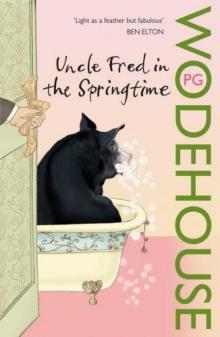 Uncle Fred in the Springtime
Uncle Fred in the Springtime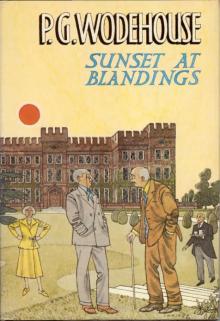 Sunset at Blandings
Sunset at Blandings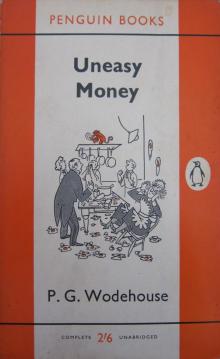 Uneasy Money
Uneasy Money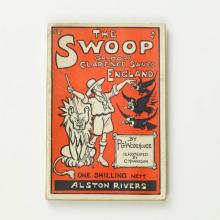 The Swoop! or, How Clarence Saved England: A Tale of the Great Invasion
The Swoop! or, How Clarence Saved England: A Tale of the Great Invasion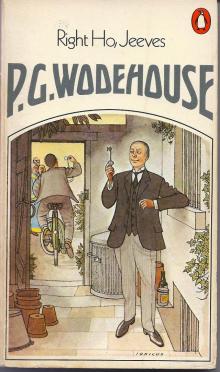 Right Ho, Jeeves
Right Ho, Jeeves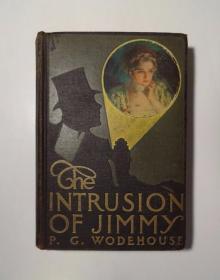 The Intrusion of Jimmy
The Intrusion of Jimmy The Jeeves Omnibus - Vol 1:
The Jeeves Omnibus - Vol 1: Aunts Aren't Gentlemen:
Aunts Aren't Gentlemen: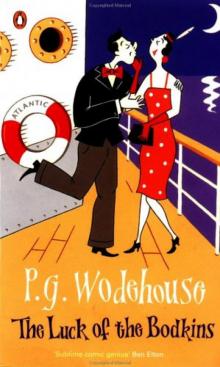 The Luck of the Bodkins
The Luck of the Bodkins The Little Nugget
The Little Nugget Money for Nothing
Money for Nothing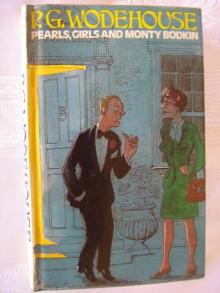 Pearls, Girls and Monty Bodkin
Pearls, Girls and Monty Bodkin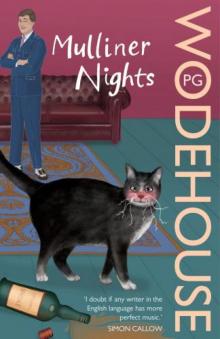 Mulliner Nights
Mulliner Nights Blandings Castle and Elsewhere
Blandings Castle and Elsewhere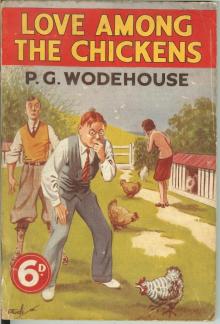 Love Among the Chickens
Love Among the Chickens Carry On, Jeeves!
Carry On, Jeeves!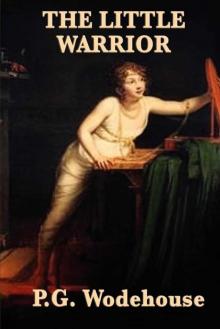 The Little Warrior
The Little Warrior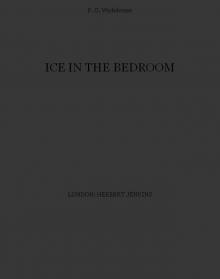 Ice in the Bedroom
Ice in the Bedroom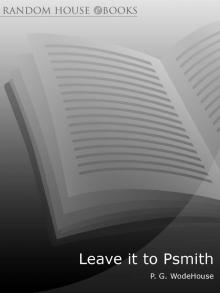 Leave It to Psmith
Leave It to Psmith Thank You, Jeeves:
Thank You, Jeeves: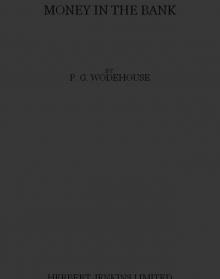 Money in the Bank
Money in the Bank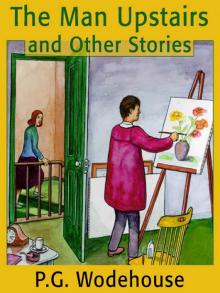 The Man Upstairs and Other Stories
The Man Upstairs and Other Stories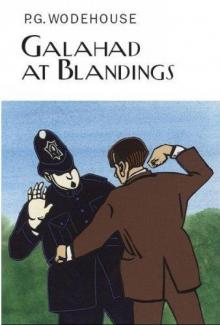 Galahad at Blandings
Galahad at Blandings The Jeeves Omnibus Vol. 5
The Jeeves Omnibus Vol. 5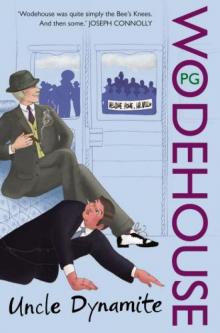 Uncle Dynamite
Uncle Dynamite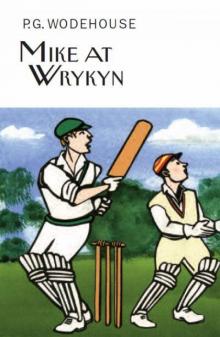 Mike at Wrykyn
Mike at Wrykyn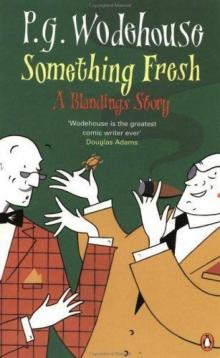 Something Fresh
Something Fresh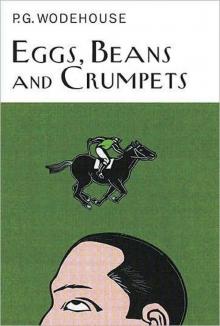 Eggs, Beans and Crumpets
Eggs, Beans and Crumpets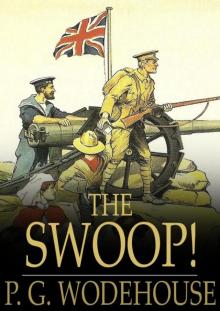 The Swoop: How Clarence Saved England (Forgotten Books)
The Swoop: How Clarence Saved England (Forgotten Books)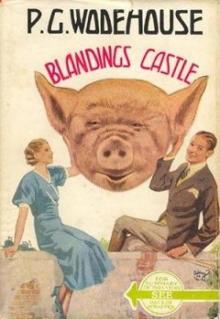 Blanding Castle Omnibus
Blanding Castle Omnibus Wodehouse at the Wicket: A Cricketing Anthology
Wodehouse at the Wicket: A Cricketing Anthology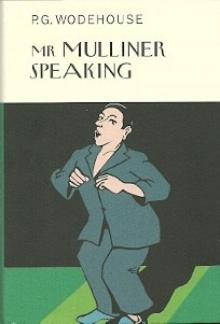 Mr. Mulliner Speaking
Mr. Mulliner Speaking Hot Water
Hot Water The Jeeves Omnibus - Vol 3: The Mating Season / Ring for Jeeves / Very Good, Jeeves
The Jeeves Omnibus - Vol 3: The Mating Season / Ring for Jeeves / Very Good, Jeeves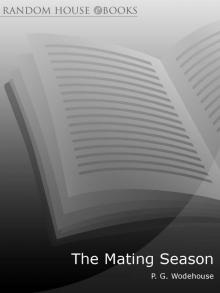 The Mating Season
The Mating Season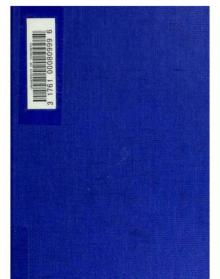 Meet Mr. Mulliner
Meet Mr. Mulliner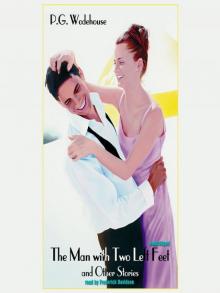 The Man with Two Left Feet, and Other Stories
The Man with Two Left Feet, and Other Stories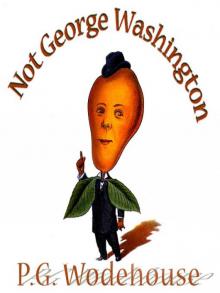 Not George Washington — an Autobiographical Novel
Not George Washington — an Autobiographical Novel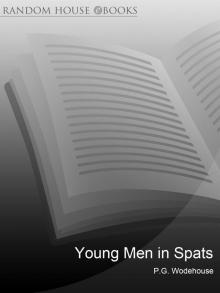 Young Men in Spats
Young Men in Spats The Jeeves Omnibus Vol. 4
The Jeeves Omnibus Vol. 4 A Pelican at Blandings:
A Pelican at Blandings: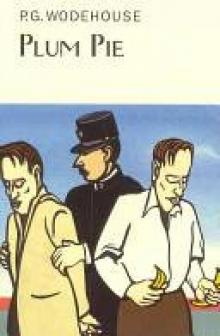 Plum Pie
Plum Pie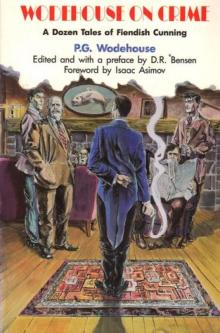 Wodehouse On Crime
Wodehouse On Crime The Jeeves Omnibus Vol. 2: Right Ho, Jeeves / Joy in the Morning / Carry On, Jeeves
The Jeeves Omnibus Vol. 2: Right Ho, Jeeves / Joy in the Morning / Carry On, Jeeves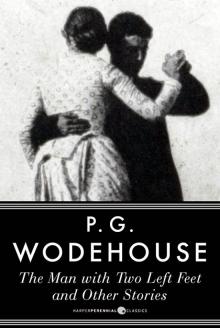 The Man With Two Left Feet
The Man With Two Left Feet Full Moon:
Full Moon: Jeeves and the Feudal Spirit:
Jeeves and the Feudal Spirit: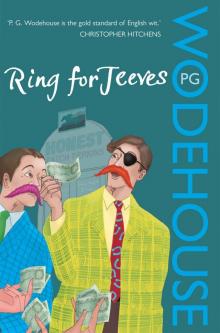 Ring For Jeeves
Ring For Jeeves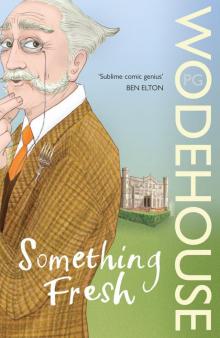 Something New
Something New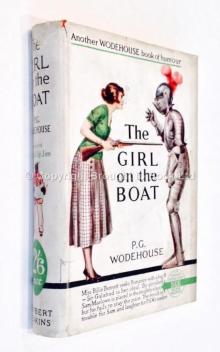 The Girl on the Boat
The Girl on the Boat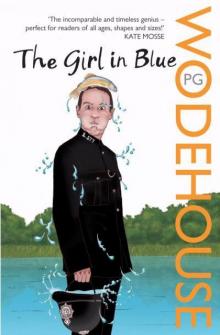 The Girl in Blue
The Girl in Blue Pigs Have Wings:
Pigs Have Wings: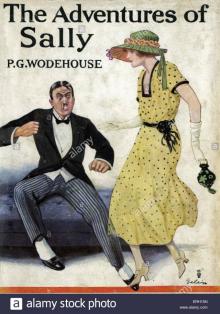 The Adventures of Sally
The Adventures of Sally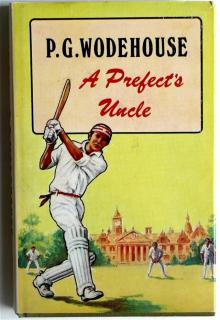 A Prefect's Uncle
A Prefect's Uncle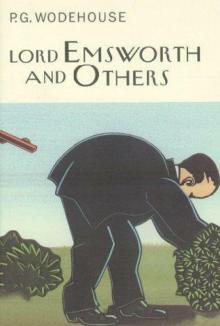 Lord Emsworth and Others
Lord Emsworth and Others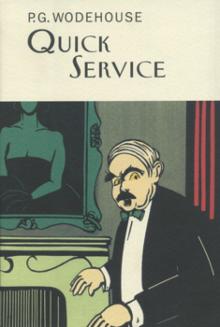 Quick Service
Quick Service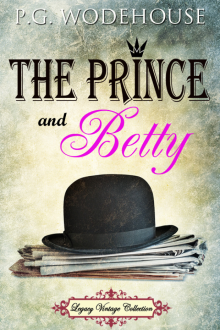 The Prince and Betty
The Prince and Betty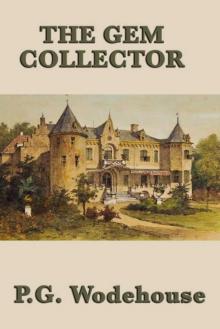 The Gem Collector
The Gem Collector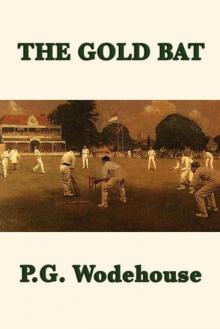 The Gold Bat
The Gold Bat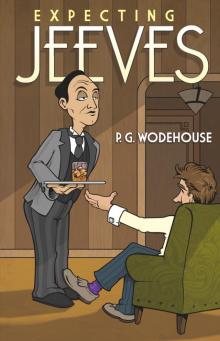 Expecting Jeeves
Expecting Jeeves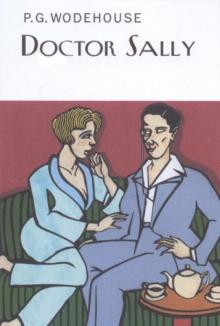 Doctor Sally
Doctor Sally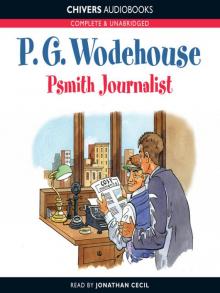 Psmith, Journalist
Psmith, Journalist The Golf Omnibus
The Golf Omnibus Heavy Weather
Heavy Weather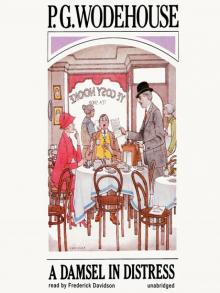 A Damsel in Distress
A Damsel in Distress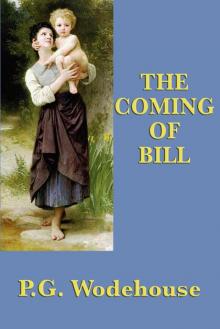 The Coming of Bill
The Coming of Bill Summer Lightning
Summer Lightning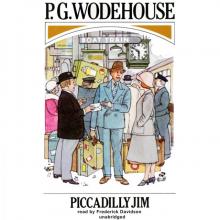 Piccadilly Jim
Piccadilly Jim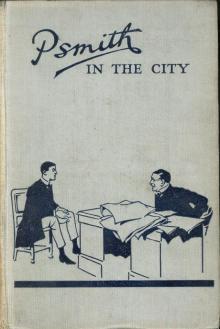 Psmith in the City
Psmith in the City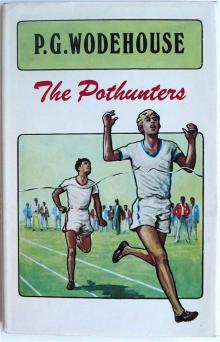 The Pothunters
The Pothunters Service With a Smile
Service With a Smile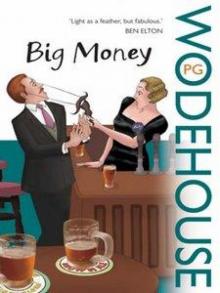 Big Money
Big Money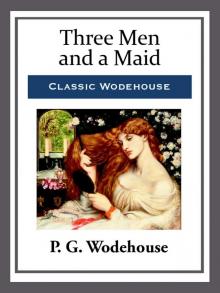 Three Men and a Maid
Three Men and a Maid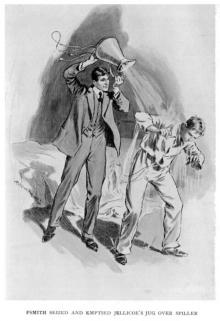 Mike and Psmith
Mike and Psmith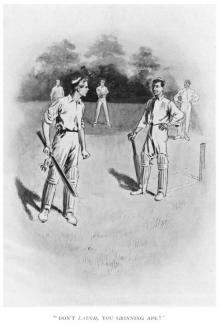 Mike
Mike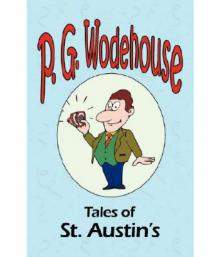 Tales of St. Austin's
Tales of St. Austin's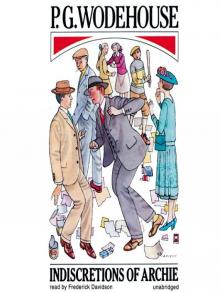 Indiscretions of Archie
Indiscretions of Archie Pigs Have Wings
Pigs Have Wings The Jeeves Omnibus - Vol 4: (Jeeves & Wooster): No.4
The Jeeves Omnibus - Vol 4: (Jeeves & Wooster): No.4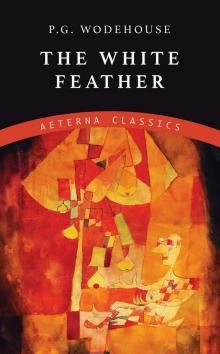 The White Feather
The White Feather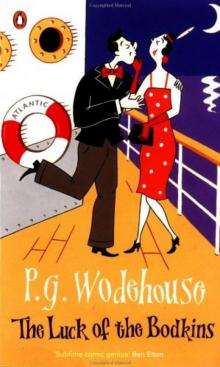 Luck of the Bodkins
Luck of the Bodkins THE SPRING SUIT
THE SPRING SUIT Full Moon
Full Moon Very Good, Jeeves
Very Good, Jeeves Thank You, Jeeves
Thank You, Jeeves Reginald's Record Knock.
Reginald's Record Knock. Wodehouse At the Wicket
Wodehouse At the Wicket LADIES AND GENTLEMEN V. PLAYERS
LADIES AND GENTLEMEN V. PLAYERS The Jeeves Omnibus - Vol 5: (Jeeves & Wooster)
The Jeeves Omnibus - Vol 5: (Jeeves & Wooster) The Jeeves Omnibus - Vol 1: (Jeeves & Wooster): No.1
The Jeeves Omnibus - Vol 1: (Jeeves & Wooster): No.1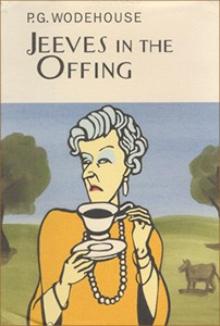 Jeeves in the offing jaw-12
Jeeves in the offing jaw-12